SATURDAY, OCTOBER 1, 2011
So You Want To Be An Actor: the Path Ahead
by Pat Reynolds
An actor is a fool for God." - Gerardine Clark
To the novices, to the overly obsessed fans of film and television as well as the students of arts and drama schools and universities, or even the occasional career-changing individual with starry-eyed dreams of fame and fortune in the world of theater and film acting…WHAT ARE YOU THINKING?!?
I can’t even begin to count the numerous individuals, good friends and people of sound mind and body who have attempted to jump into this world of ours only to be crushed, broken by the truth of what the industry is really like. If you’re accustomed to working normal hours at a living wage, having holidays, evenings, and weekends off; being treated like a human being with opinions, ideas, hopes and dreams -- then perhaps you should reconsider this path and whatever foolishness that put these delusions of grandeur and nonsense into your head in the first place.
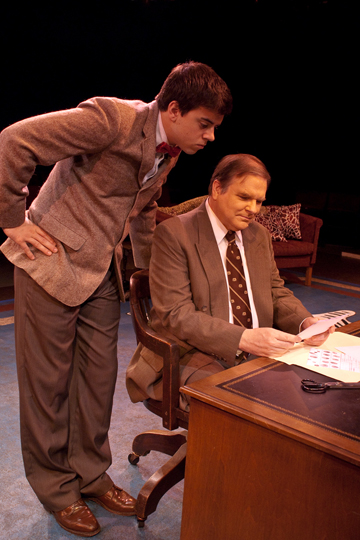 Truth is you need to prepare yourself for a world where more often than not you will be treated like cattle; a world full of rejection where you will hear the word NO or “I‘m sorry, you‘re just not right for the part“ most of the time. Also, don’t lose sight of the fact that just because you may be one of the lucky few who graduated from one of the many great and renowned Acting Schools, you still have a lot to learn about the real world of acting. For instance 80-90% of all actors are always unemployed. ALWAYS. Say you’re lucky enough to be cast -- in the beginning you’ll more than likely lose more money in the process of trying to make ends meet than you will actually be paid for whatever acting job you‘ve landed. Plus, who knows when or if your next job will come along.
Truth is you need to prepare yourself for a world where more often than not you will be treated like cattle; a world full of rejection where you will hear the word NO or “I‘m sorry, you‘re just not right for the part“ most of the time. Also, don’t lose sight of the fact that just because you may be one of the lucky few who graduated from one of the many great and renowned Acting Schools, you still have a lot to learn about the real world of acting. For instance 80-90% of all actors are always unemployed. ALWAYS. Say you’re lucky enough to be cast -- in the beginning you’ll more than likely lose more money in the process of trying to make ends meet than you will actually be paid for whatever acting job you‘ve landed. Plus, who knows when or if your next job will come along.
I could go on and on for days, but what’s the point? If you’re anything like me: a stubborn S.O.B. who, come hell or high water, won’t be deterred from his passion because it’s not about fame or money; it’s about the beauty within and the “high” you get from the simple act of artistic creation. Now, there are many outlets out there (besides running off to New York or L.A.) such as our world: the world of community theater -- a place, albeit, where there is usually no money to be made. However, it’s a great place to get started at refining your tools and sharpening your skills as an actor; a place that over time you will find is actually much more like a home full of loving, dysfunctional, extended family and great opportunities to perform in or work on shows that you may never have had the chance to be a part of elsewhere in the world.
Now before you run off and get headshots done and begin memorizing monologues, allow me to pass along some bits of advice from lessons learned and mistakes made in my tumultuous and checkered career as an actor.
1. Be committed or get out of the way. If you want to be an actor, KNOW IT! Know it in your head, know it in your heart, know it in your bones! Don’t come to an audition unsure if it is what you REALLY want to be doing with your time. There is no time for hand holding or constant reassurance that this is where you belong. There are plenty of other actors who would kill for an opportunity to have your audition, and your self-doubt and wishy-washy attitude is a slap in the face to these diehard artists. You should come to an audition with the single-minded determination and drive of an invading army. Let nothing stand in your way or deter your focus from your objective: getting the part! If you can’t take the audition process seriously, then all of the advice in the world isn’t going to help you.
2. Do your homework. Whenever possible, you should come to an audition with some knowledge of the role or show you are auditioning for in the first place. Find the script and read it. If you can’t find the script, search online for reviews of the play to learn what the show or characters are about. Also, research the theater or production team if possible and read reviews of other plays produced at the theater to learn what kind of effort they put into their shows and the quality of their work in the past. With the advent of social networking, there is no shame in asking around about the production team: the director, producer, stage manager, etc. Learn what they are like -- do they sound like the type of people and personalities that you would want to work with and spend much of your time with for the length of the production? Yes, you may have just been cast in the lead, but is having the lead worth working for a loud, obnoxious or even rude production team member? Maybe yes, maybe no, but you will only know for sure if you’ve fully done your homework prior to the audition.
3. Never be late. Be on time, every time. ALWAYS!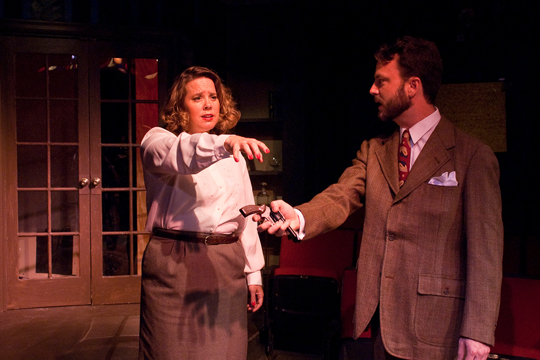
4. Know your limitations. There is no greater waste of time than going out for a role that you are clearly not suited for. Let’s say you’ve done your homework and read up on the character descriptions online prior to the auditions and you see that the role you want is described as being “Late teens to early 20’s, 5’9” or taller, and blonde.” Well if you’re 40, 5’1” and brunette, how do you really expect to be taken seriously by the director who, more often than not, is the person who wrote the character description? They know what they are looking for so if you to go in expecting or (god forbid) demanding that they change their mind, you’re wasting everyone’s time. Learn your strengths and weaknesses; know them well, and never be ashamed of them -- not every actor is suited for every role. However, if you keep your eyes peeled for the audition notices and character descriptions that match perfectly to your specific strengths and looks, then you are at a better advantage for that audition.
5. Be Respectful and Nice. Be respectful and nice to those around you. Be respectful of the props and personal property around you. Be respectful of the theater you are working in; if the theater has specific rules, learn them and respect them. It just makes getting through the tough and tense times of a production that much easier.
6. Take nothing personally. Whether it’s a rejection of your audition or a director’s note about your character or even the occasional snide remark from a diva-like cast mate, just let it slide off your back. This is a tough business and people aren’t always going to be nice to you. They won’t have the luxury of time to ease your delicate ego into rejection. You had better have both a thick skin and the ability to turn the other cheek rather easily.
7. Never stop learning. Read scripts. Read books on theater, on acting, human behavior, psychology, sociology. READ, READ, READ! If it’s a book or an article about human beings and their behavior, READ IT! Acting is all about how human beings behave in a given set of circumstances. The more you study human behavior, the better of a performer you will become. If you ever reach a point in your career as an actor where you honestly say to yourself, “I know all there is to know about acting” or anything remotely like that, QUIT! If that’s the attitude you have about your art then you can grow no further; you have halted your ability to constantly evolve, and it’s just insulting to your fellow actors.
8. Never read reviews. This will take some effort to both avoid reading and hearing about them. I still have trouble with this one. Being the acceptance-craving creatures that we actors can be, it’s natural to want to know what others think of our work. However, in my experience, 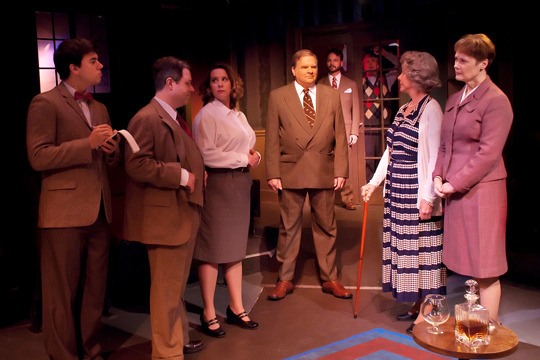 reading reviews can sometimes have horrible effects on an actor or a production. Let’s say you read a review that is highly critical of how you’re portraying your character. Well it’s only natural to feel a need to appease criticism or to “do better.” Even the most experienced actors may subtly change things even if they don’t realize they are doing it in order to “make the show better.“ Or on the opposite end of the spectrum, let’s say you get a stellar review and the reviewer loves everything you are doing, subconsciously you may begin to think, “Oh, if they loved that, I can do it better or milk it more.” Or heaven forbid you sink into “DIVA Mode.” Your job is to do the show as you’ve rehearsed it each time, every time. If there need to be changes to a part of the show, the director or stage manager will tell you. Just do yourself and the production as a whole the favor of reading the reviews AFTER closing night, and if you are so shallow that YOUR opinion of YOUR ART relies on getting good reviews or on the approval of others, then I can only pity you because no review will ever be good enough.
reading reviews can sometimes have horrible effects on an actor or a production. Let’s say you read a review that is highly critical of how you’re portraying your character. Well it’s only natural to feel a need to appease criticism or to “do better.” Even the most experienced actors may subtly change things even if they don’t realize they are doing it in order to “make the show better.“ Or on the opposite end of the spectrum, let’s say you get a stellar review and the reviewer loves everything you are doing, subconsciously you may begin to think, “Oh, if they loved that, I can do it better or milk it more.” Or heaven forbid you sink into “DIVA Mode.” Your job is to do the show as you’ve rehearsed it each time, every time. If there need to be changes to a part of the show, the director or stage manager will tell you. Just do yourself and the production as a whole the favor of reading the reviews AFTER closing night, and if you are so shallow that YOUR opinion of YOUR ART relies on getting good reviews or on the approval of others, then I can only pity you because no review will ever be good enough.
9. Never use a monologue from a movie. Except in the case that the movie was at one time a play. In which case, go out and find a copy of the play and memorize that instead. Why? I mean if it’s exactly the same in the movie as it is the script, what difference does it make? Simple: if you memorize a speech or monologue from a movie, you will instinctually begin to copy and imitate the actor you are watching rather than make the speech your own.
10. Avoid the pitfalls of being a Diva. You’ve all worked with one even if you‘ve never worked in the world of acting. Hell, I’ve been known to be one on occasion. And yes, we can all have a Diva moment from time to time when the frustrations and stresses of working on stage just explode out in a fit of rage or angry words. Or perhaps something happens such as getting an awesome review or some large recognition of your work, and your ego begins to swell to the point of feeling that you’re better than others. Or maybe you’ve been the lead of every play you’ve ever been in so you start to feel like the world should bow down and be inferior. The occasional moment is one thing; it happens, but if you’re not careful, this behavior can seriously haunt you. It can follow you to every theater you go to. You have to remember: the world of theater and film is a small world where everyone knows everyone else. Words can spread faster than you know. Be rude to an extra on the set or say the wrong thing to the wrong person and there’s no telling what could happen -- before you know it, you’re getting turned down for almost every role you go out for. After all, who really wants to work with people like that? Yes, this is a business but at the same time, it’s something most people want to have a good time doing, and they don’t need bad experiences with people like that if they don’t have to have them. Divas can lower morale and hurt productions, and sometimes these behaviors can have harsh consequences. Just be nice to people and don’t get a swollen head from critical acclaim. After all, even a blind squirrel finds a nut once in a while.
THURSDAY, SEPTEMBER 1, 2011
Obsession: The High Cost of Art
by Pat Reynolds
“I’ve been called many names over the years like perfectionist, difficult, and obsessive. I think it takes obsession, it takes searching for the details for any artist to be good.” -Barbra Streisand
Dictionary Definition of “Obsession”- Compulsive preoccupation with a fixed idea or an unwanted feeling or emotion, often accompanied by symptoms of anxiety.
Obsession. The mere mention of the word conjures images of crazed individuals, sequestered in private rooms, tormented by manifestations of the source of their obsession. Paraphernalia, collections gone wild, walls papered by pictures, news articles, and unanswered letters become the personification of human objects of the obsession. A drug, a person, an idol, a desire so strong it begins to eat at the walls of sanity. Objects of obsession come in many forms, but the symptoms, and sometimes the results, are the same. These are the rare nut jobs, of course, the ones who hit the talk show circuit. There are everyday people, too, who have perfectly reasonable obsessions. People like you and me - artists, writers, dancers, musicians...actors. Our vocations seem to draw more than our fair share of obsessive personality types.
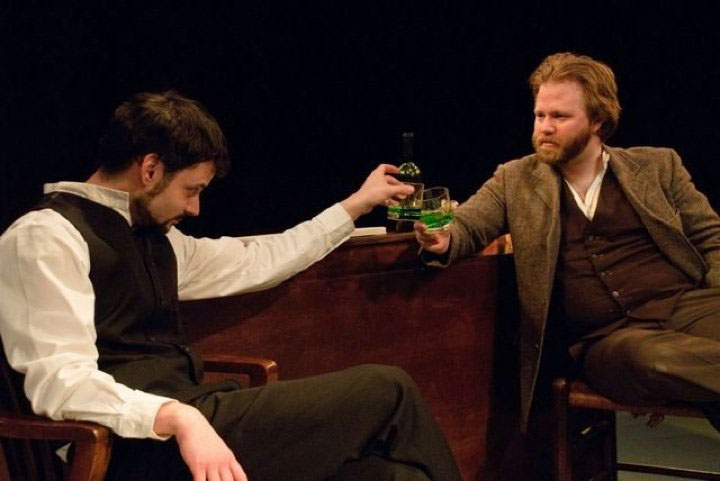 Now why is that? What is it about our particular corner of the world that seems to so frequently attract the obsessed and often manically driven lost souls to our sandbox? Perhaps we are drawn to the overly romanticized concept of the artist, poet, or actor as a “dark individual” with mysterious character and motive, with extreme passion for life, love, and creativity. Perhaps we unknowingly feel the dark myth and ideal. It doesn’t happen to all of us. Why can some artists create without obsession, without second thought, while others get fixated on the details of their work, unable to let go until their product reaches perfection? As I sit here contemplating the difference between these two types of artists, I realize I’m far more interested in the latter than the former, because as I know first hand, with great obsession comes great cost.
Now why is that? What is it about our particular corner of the world that seems to so frequently attract the obsessed and often manically driven lost souls to our sandbox? Perhaps we are drawn to the overly romanticized concept of the artist, poet, or actor as a “dark individual” with mysterious character and motive, with extreme passion for life, love, and creativity. Perhaps we unknowingly feel the dark myth and ideal. It doesn’t happen to all of us. Why can some artists create without obsession, without second thought, while others get fixated on the details of their work, unable to let go until their product reaches perfection? As I sit here contemplating the difference between these two types of artists, I realize I’m far more interested in the latter than the former, because as I know first hand, with great obsession comes great cost.
We don't have to look far to find a number of actors whose body of work is considered brilliant, bordering on genius even, yet who were deeply troubled in their private lives. Often it’s this darkness that is credited as being the very thing that inspired the brilliance. It’s also this vicious cycle of “disturbing, destructive, and obsessive behavior helping to create perfection in art,” which has lead to tragic ends. James Dean, Heath Ledger, Montgomery Clift, Marilyn Monroe, Peter Sellers, and even the father of modern stage and film acting, Marlon Brando, battled with self-doubt and perfectionism. obsessive behavior and the endless pursuit of perfection creates a need for escape that manifests itself in a variety of venues - drug and alcohol abuse, depression, weight issues, erratic decision making, womanizing and reclusive behaviors, to name just a few. These become the walls the artist builds and hides behind to get away from the pain, stress, and constant uncertainty inherent in the expectation of fame and inspired creation.
Now, it’s somewhat difficult to relate to celebrities or famous actors and artists, being that many of us live “normal,” simple lives, and acting or the artistic endeavor is merely a hobby, something we do for fun. For a few of us, however, even at the community theater level, acting and creation of art means far more than something to do on the weekends. For some of us, the creative impulse is a NEED that cries out with a voice that must be answered. Occasionally, even at the local level, this need that compels us to create can also drive us towards madness and obsession. I don’t presume to speak for others - they can agree or not. I will simply speak for myself since the consequences of the story of obsession that follows were of my own creation.
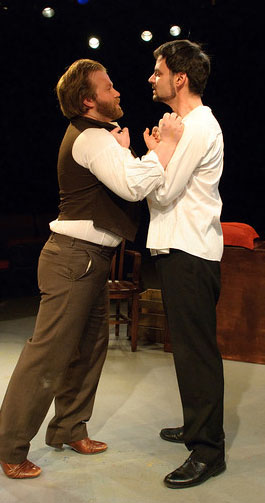 “We are the makers of our own problems.” For those who know me well, it’s easy to see how the word obsession and my name often go hand and hand, especially when it comes to my acting and character creation. However, for those of you who only know me as “that guy on stage,” allow me to tell you the story of how my obsession with my art has caused much pain in my past and present.
“We are the makers of our own problems.” For those who know me well, it’s easy to see how the word obsession and my name often go hand and hand, especially when it comes to my acting and character creation. However, for those of you who only know me as “that guy on stage,” allow me to tell you the story of how my obsession with my art has caused much pain in my past and present.
Let’s take my most recent performance in the shape of things as the basis for this story. Back in January of 2009, I became aware of the aforementioned show when CP released the 2010/2011 season slate. Upon researching the play I immediately became very taken with the show’s lead character Adam and his flaws and personality traits as well as his relationships with the other characters. There were so many little nuances and flaws within the character that I could easily relate to moments in my own life and past relationships. It wasn’t long before I was falling under the spell of obsession with the role. A role, mind you, that wouldn’t be cast for close to a year. Over the following months, I was cast in several different shows, but I never took my eye off the prize, so to speak. I only told my closest of friends about my interest for fear that, irrational as it may have been, too many others would find out about my interest in the role. As auditions crept nearer, my obsession bore deeper, to the point of making the decision to change my entire appearance to match that of the character I hoped to portray.
Four months prior to auditions, I was a thirty-one-year-old, 190lb, physically unfit, two-pack-a-day smoker, who often socially drank. I decided all that had to change, immediately and drastically! I began by purchasing gym equipment and a weight set. I cut out all alcohol and bad/unhealthy foods. I started to take Chantix to quit smoking, which worked quite successfully at the time. I changed to a low fat, low carb, high protein diet. I started running everyday, I dyed the gray out of my hair, and I began a tanning regimen. I had four months to become a younger, more muscular, physically fit and healthy me. I was not only willing, but also determined to change my entire being for a chance at a role I wanted more than life. I had become the poster boy, the very definition of obsessive.
So what? So I decided to change my looks - that’s not all that uncommon, whether for an audition or just because. Sadly, my obsession didn’t stop there, didn’t stop even once I was lucky enough to be cast in the show. As rehearsals began, many personal relationships in my life began to suffer. I pushed old and new friends to the wayside, no longer having or making time to spend with them. As selfishness took root, I suddenly and without warning cut off contact with a lady I had recently begun to nurture a friendship with. Needing to focus on rehearsals and workouts, I no longer set aside time to see my newborn niece, let alone the rest of my family. In my mind, my behavior was justified and all about focus. I had to be available at a moment’s notice for rehearsals, runs, and workouts - as many of them as possible. Slowly, sleep became less and less important; I was lucky to get three to four hours per night between working two jobs and fitting in the all important workouts and rehearsals. My eating habits began to slow to the point of eating only one massively protein packed meal per day. When I wasn’t in the middle of all of the activities above, I was overly obsessing and stressing over the script, the blocking, and the sound of my voice. Sometimes I’d stay up all night going over a line, again and again until it was just right. Everything had to be perfect, because this was “That Role,” the one that comes along so very rarely that past performances pale in comparison; one that raises the bar for every artistic endeavor in the future. This is the stress and baggage that I brought into my life, all in hopes of creating a perfect performance, and all in spite of the many warnings from my family and friends who were concerned about the toll my obsession was visibly taking on me.
 In the weeks between Opening Night and Closing Night, reviewers, patrons, friends, and my own internal critic left no doubt in my mind that all the work getting to that point was worth it. I knew instinctively that this was quite possibly the best performance I had ever given. After Closing Night, I felt all the changes and sacrifices were justified, and I was confident I could (and in fact did) initially return to my normal life. Normal didn’t last. Yes, I settled back into my old routine, the workouts slowed down, and I definitely had all the free time in the world to spend with my friends and family again. Unfortunately, the stress didn’t stand down. I began to suffer from panic attacks and started smoking again. I was also getting sick more often, thanks to the low immunity caused by months of an unbalanced diet and lack of sleep.
In the weeks between Opening Night and Closing Night, reviewers, patrons, friends, and my own internal critic left no doubt in my mind that all the work getting to that point was worth it. I knew instinctively that this was quite possibly the best performance I had ever given. After Closing Night, I felt all the changes and sacrifices were justified, and I was confident I could (and in fact did) initially return to my normal life. Normal didn’t last. Yes, I settled back into my old routine, the workouts slowed down, and I definitely had all the free time in the world to spend with my friends and family again. Unfortunately, the stress didn’t stand down. I began to suffer from panic attacks and started smoking again. I was also getting sick more often, thanks to the low immunity caused by months of an unbalanced diet and lack of sleep.
The culmination of my obsessive behavior imploded exactly one month after Closing Night. With acute abdominal pain, I was rushed to the hospital and diagnosed with an ulcer that had ruptured my stomach. Following emergency surgery and a lengthy recovery, I learned the hard way: there are sometimes great consequences to being overly obsessed with one’s art. Luckily, my situation served as a grand eye-opener for me. I simply couldn’t continue certain behaviors in the pursuit of my art. Even knowing all the stories of troubled artists who succumbed to their obsession, it took my own pain and suffering to wake me up to the realization that if I didn’t change my path and my “method” of creation, I was headed down a similar road.
The truth is, there are far better ways to reach creative nirvana, and they don’t involve self-destructive behaviors. Obsession can be a good thing when used effectively with consideration to safety. Commitment bordering on obsession can definitely benefit an individual artist under the right conditions. History proves, however, that obsession also can be easily abused and corrupted, and in that corruption a danger exists. If friends, family, peers, or even one’s own self-awareness and conscience are screaming out warnings, pay attention. I learned a great lesson from my experience - an experience I know now that I didn’t have to go through if only I had listened to my friends and others around me who saw what I couldn’t.
MONDAY, AUGUST 1, 2011
Off Book: The Origin
by Pat Reynolds
“For the love of God, please don’t tell the stage that I’m cheating on her with the written word! She simply won’t understand.”
-Pat Reynolds
A Blog is Born.
From a few simple questions posed by my good friend and current President of the Board at Colonial Players, Terry Averill, I began to see a niche need develop. How can we reach a larger audience? How do we as a community theater bring in more talent, new talent? 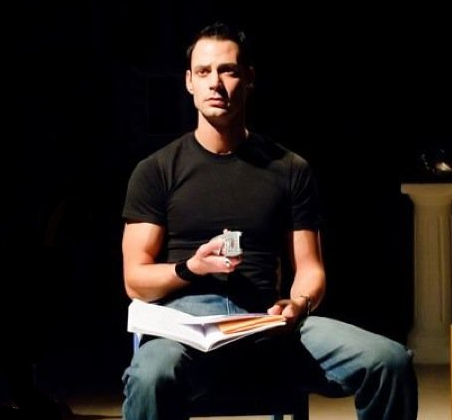 How do we reach out beyond our current circles of friends, supporters and subscribers? How do we, as an all volunteer theater, branch out and grab the attention of a younger generation? How do we not only broaden our talent pool of Actors, Directors, Producers, Lighting and Sound Designers, etc, but bring the world of community theater into the view and focus of people who never thought they would be interested in the inner workings of theater? Finally, how do we bring in new audiences, people who don’t yet know the beauty and art that is live theater? How we reach people who would normally never take in a night at the theater, who would rather go to the movies, stay at home and watch DVDs, or as I am now, sit behind a computer screen?
How do we reach out beyond our current circles of friends, supporters and subscribers? How do we, as an all volunteer theater, branch out and grab the attention of a younger generation? How do we not only broaden our talent pool of Actors, Directors, Producers, Lighting and Sound Designers, etc, but bring the world of community theater into the view and focus of people who never thought they would be interested in the inner workings of theater? Finally, how do we bring in new audiences, people who don’t yet know the beauty and art that is live theater? How we reach people who would normally never take in a night at the theater, who would rather go to the movies, stay at home and watch DVDs, or as I am now, sit behind a computer screen?
"Let's take a chance," Terry suggested. As we discussed what that meant, it was clear he wanted to take advantage of the launching of The Colonial Players new website, and explore all its capabilities to promote every aspect of live theater; to expose CP in a way that hasn’t fully been explored. He believed that with the new website, we have a new opportunity to showcase our theater and talented volunteers and to promote all that is The Colonial Players to achieve its fullest and utmost potential. I agreed. We are a digital/WiFi/Internet world and to reach a larger audience we must get out there and grab their attention where they live their lives. The best way to do that is online and Off Book.
And so, for better or worse, sink or swim; here I am. Brace yourself dear reader, from here on out, things start to get really real…
I love acting and the world of theater. In fact, in a few hours I’ll be pacing the boards, reciting lines memorized, and sharing emotions I’ve never shown in public, all in an effort to create, yet again, “the greatest performance I’ve ever portrayed.” So, don’t misunderstand my intention. I’m not writing about all I’ve learned and experienced in my 15-plus years in the business because I’m bored or upset at the world of theater, or because I want to frighten and shock our audiences. I’m creating Off Book because I want to open the circle a bit and because I’ve been told I have “a knack for grabbing people’s attention, with a very unique world perspective and a storytelling and interviewing ability that doesn’t just entertain or educate but it can inspire.” I don’t know about all that, but I can attest to the fact that I simply call it as I see it, and do so unapologetically. I won’t be a mindless drone spouting off about the latest production and insisting you “Need to see it!” No need, we’ve got an entire website devoted to just that.
With Off Book, what I want to do is peel back all the layers of our world and expose all of our hidden secrets. I want my fellow actors, directors, production staffers, and techies to read this for what it is: a straightforward, raw look behind the scenes of ‘The Life’ as we have been living it for generations. Who but us knows that means devoting most of our free time to memorizing lines, setting lighting designs, building sets, driving miles and miles to the theaters for no pay, then crawling into our beds at all hours of the night only to wake up early for our “real” jobs, where we will, most undoubtedly, be thinking about our shows, our lines, our costumes, what will look or sound good onstage, and what we‘re going to try at the next rehearsal. Some of my peers may not care what I’m up to, but they’ll identify with the experience, and they’ll recognize truth in the process.
I want the Off Book audience to get a sense of who we are and what it truly takes to bring to life the performance they are about to view; that we, “those theater people,” are not all that different from them. I want to show the fun and joy that is creating living works of art. I want to break down any and all walls about exactly how hard our business is; that it’s not just remembering words and telling jokes or crying on cue; that there is more bloodshed and psychological damage inflicted to create a truly awe-inspiring performance than one would dare believe. I hope to bring the “theater outsider” inside the green rooms and dressing rooms to learn what it’s like to be a part of a very tight-knit cast and crew. I hope readers will be drawn in by the human connection of lives and stories shared through our experiences in the world of community theater.
Occasionally, the casual observer may feel that I’m talking in some strange foreign language. The truth is, I probably am, since we do have a unique vernacular compared to the rest of the world. After a while, though, it’s quite a bit like listening to your favorite radio show or television series. Before long, the readers will get to know the characters and the language, and soon enough, will be tracking right along with the best of us. Off Book will, from time to time, offer highlighted segments including ‘In Your Voice,’ interviews with various talents in our area, both the well-established and the up and comers. Also, a segment entitled, ‘A Day in the Life,’ where we will follow actors, directors or stage hands through their days. In this segment, we will showcase an actor, director, designer or producer as he or she goes about his or her normal routine of living a normal life; how this person works a regular job during the day and then in the evening, heads to the Annex for rehearsals or to the theater for a performance. Off Book will initiate non theatergoers into our world, and let them see that we are just like them, and they can be just like us.
Along the way, maybe you and I will both learn a few things - lessons and concepts in acting, lessons in directing, lessons in life; things that we wouldn’t have noticed otherwise or even expected from a simple blog on a website. Above all, I hope to show in Off Book that in spite of all the good, the bad, and the sometimes incredulously ugly, that ‘This Life,’ this world of theater, can be an unbelievably rewarding one and most of all, it can be FUN.
Don't miss out! Sign up for our email list by clicking here!
To contact The Colonial Players, please refer to the email directory on our Contact Us page or email This email address is being protected from spambots. You need JavaScript enabled to view it..
For questions about tickets and subscriptions, email This email address is being protected from spambots. You need JavaScript enabled to view it..
For website comments, questions, suggestions, as well as copyright and usage information, please contact This email address is being protected from spambots. You need JavaScript enabled to view it..
Copyright 2025 • The Colonial Players, Inc. • 108 East Street • Annapolis, MD 21401 • Phone: 410-268-7373

